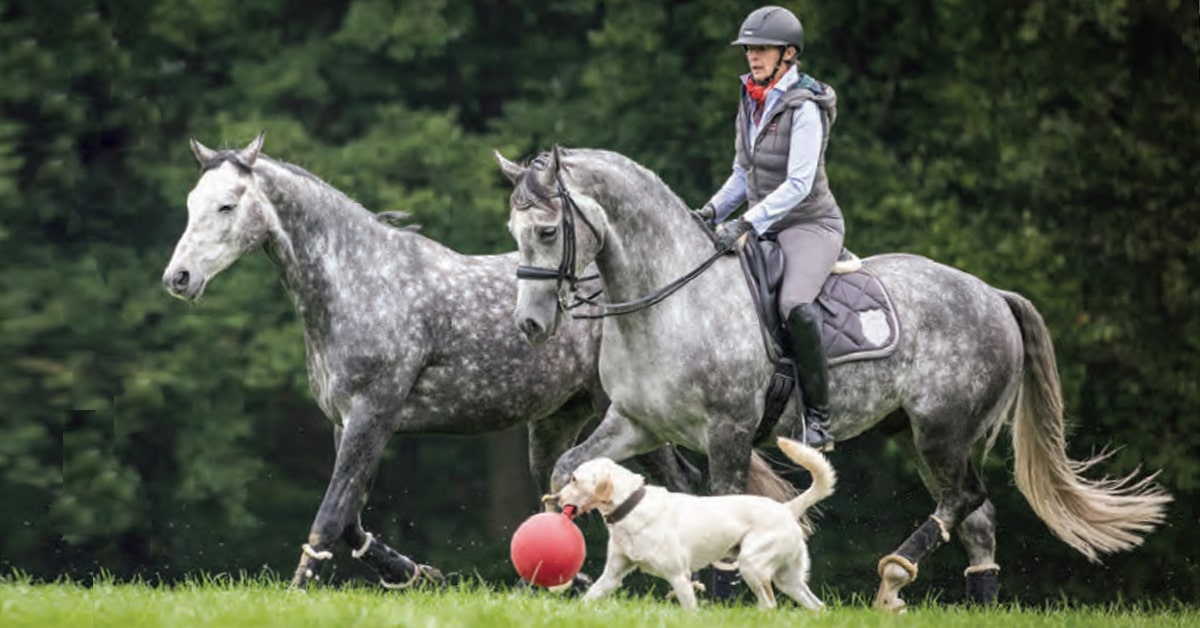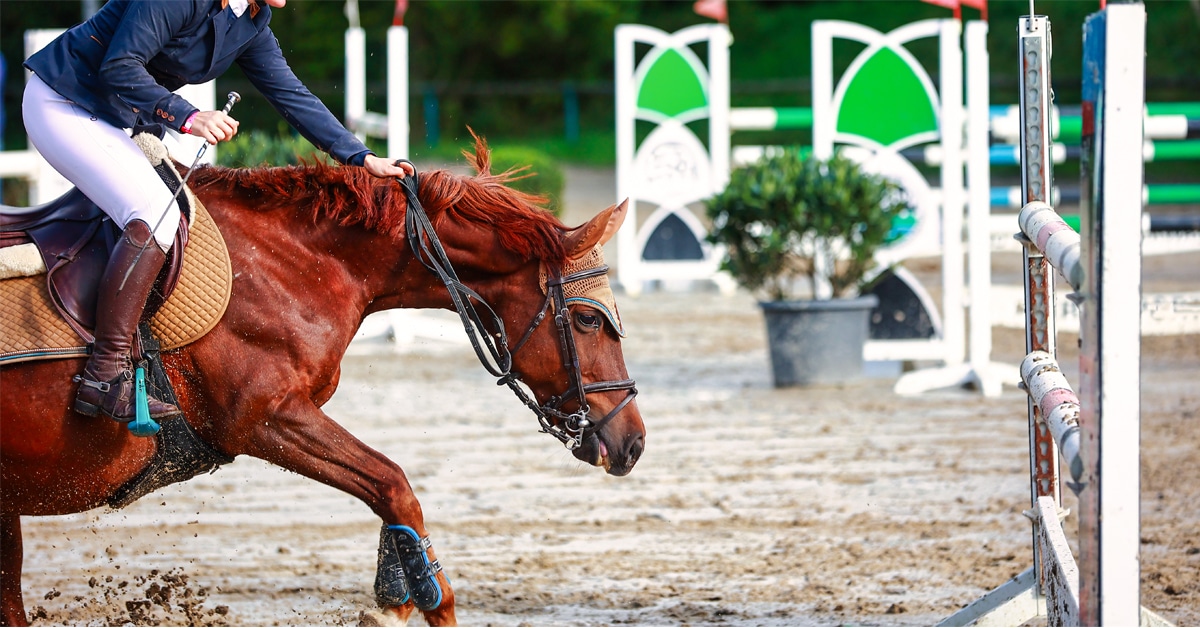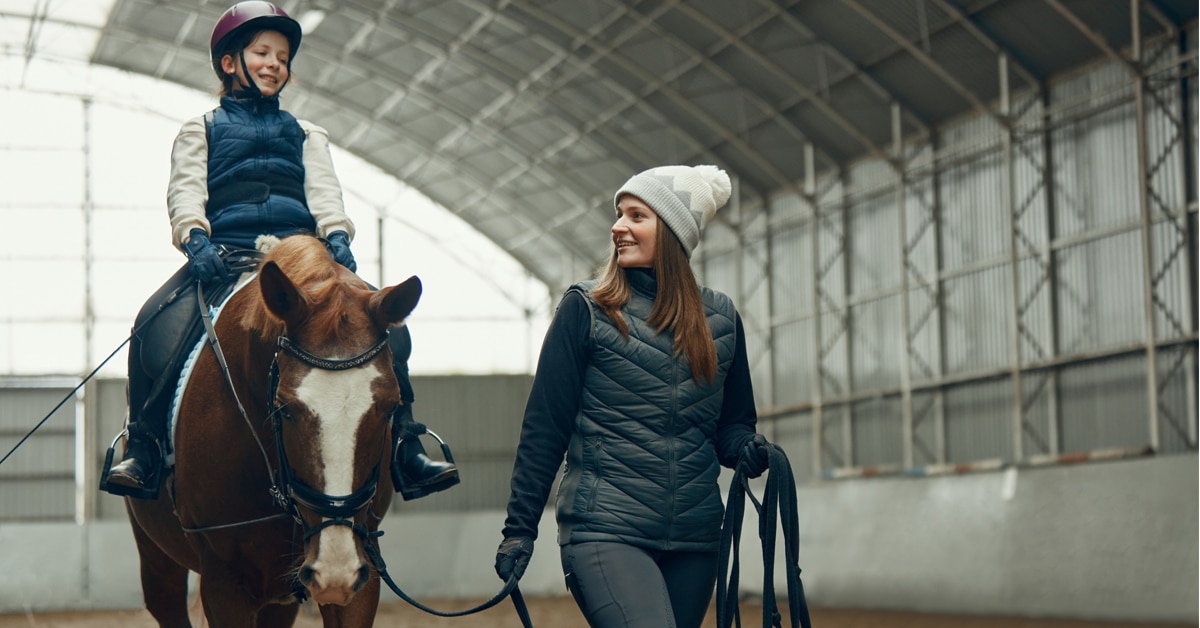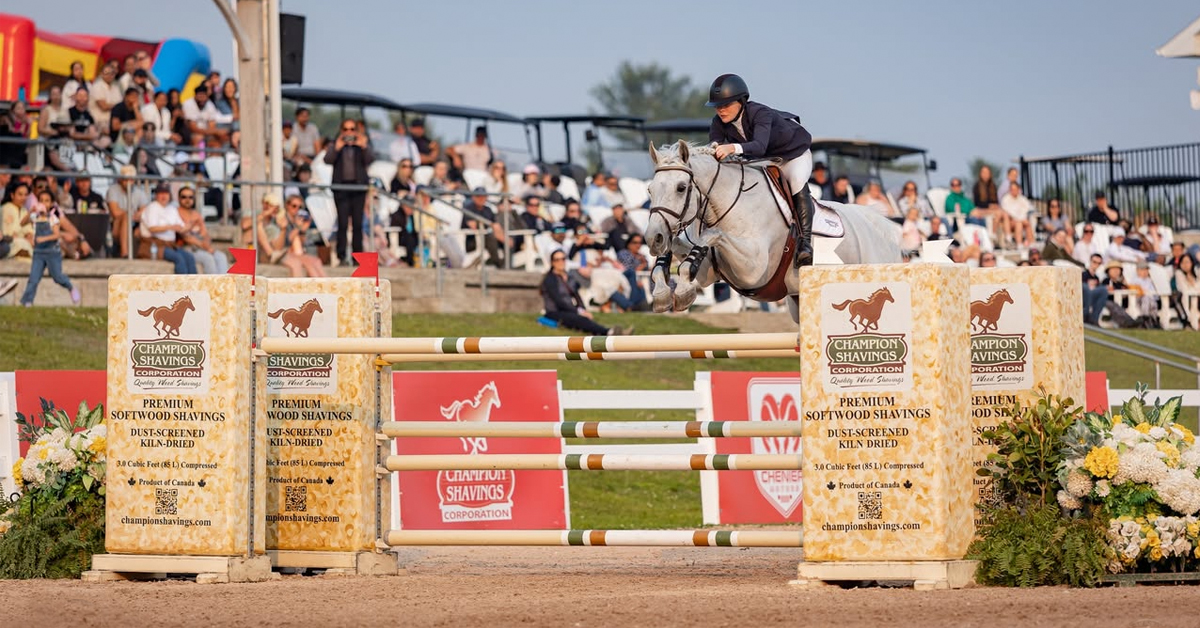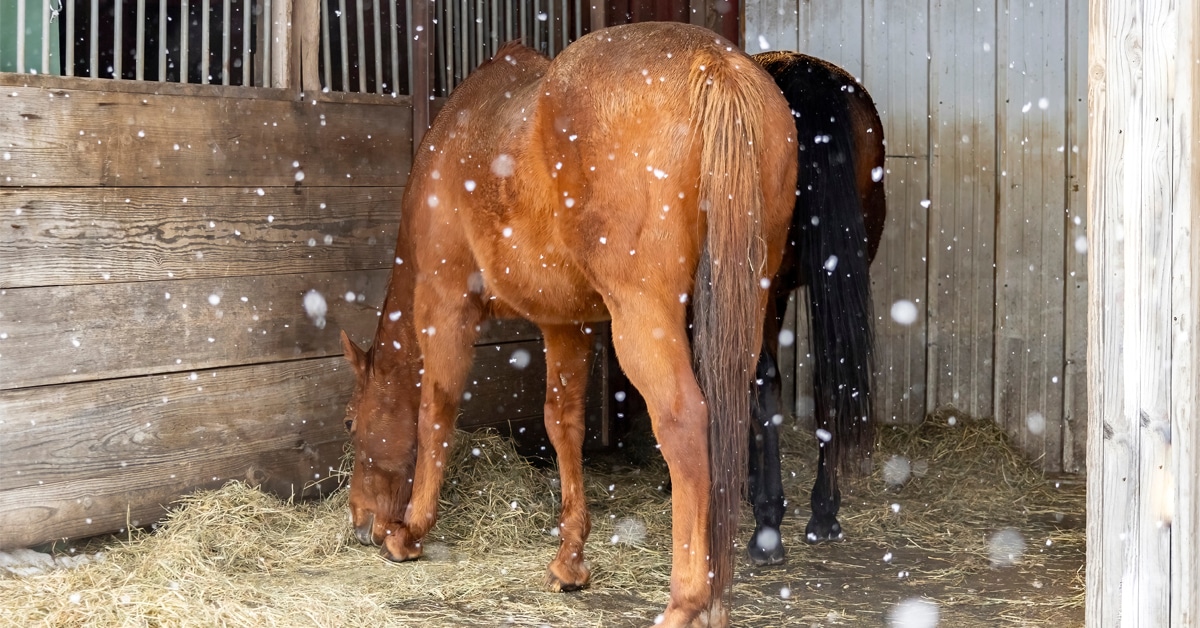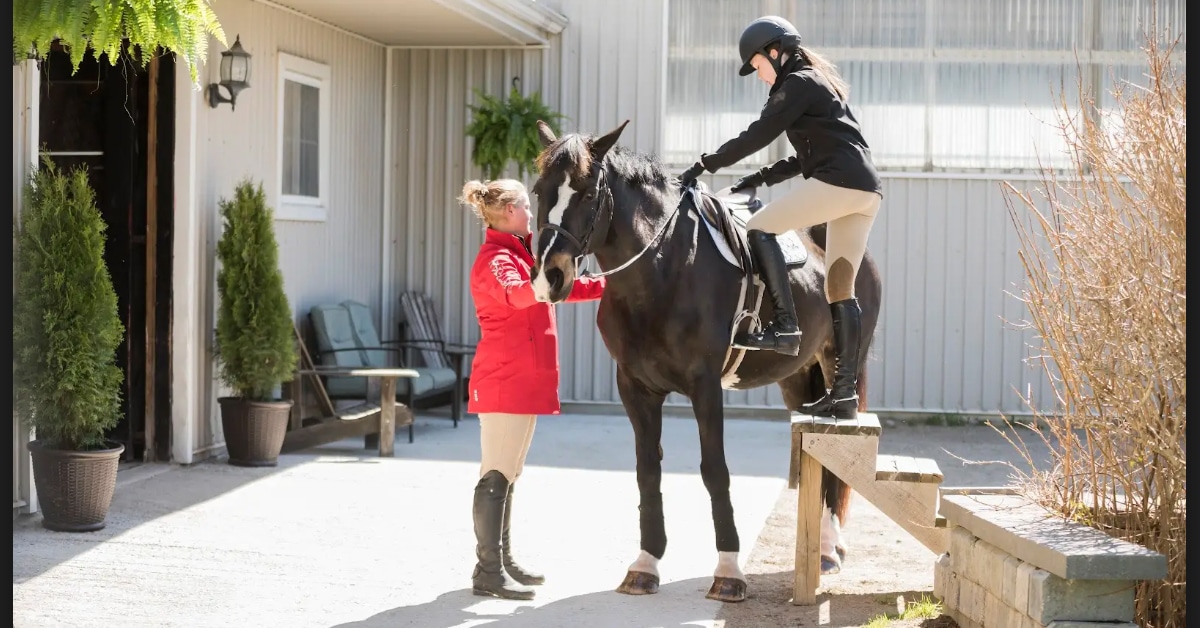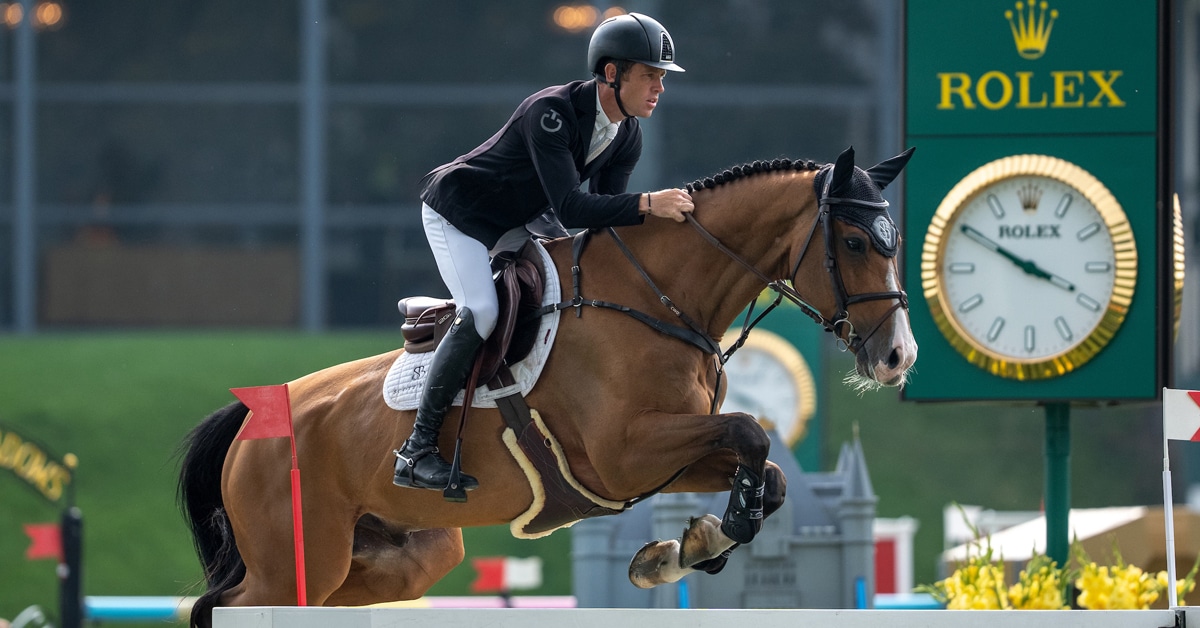Roz Moskovits is an equestrian coach, business consultant, lecturer and judge who has been a horse industry professional for over 35 years and was one of the first fully-licensed Equestrian Canada coaches in Nova Scotia. She is the author of the book The Equestrian Planner: Every Rider’s Guide to Personal Success and she created EquiCollege as an educational tool for horse owners and professionals. She was a recipient of the Sport Nova Scotia Equestrian Coaching 3M recognition award.
What coaching credentials do you have and when did you get them?
In 1986 I became certified as a Level 1 Coach through what was then called the Canadian Equestrian Federation. In 1991 I received my CTRI (Canadian Therapeutic Riding Instructor) certification through CanTRA. In 1998 I earned my EC Level 2 with a specialty in dressage. Under the new coaching system I was transitioned to a Competition Coach Specialist and became a fully-licenced EC coach in March of 2021.
What inspires you about being a coach?
My career goal has always been to work towards the improvement of the lives of our horses. With this in mind I enrolled in the Equine Studies program that was being offered at the Nova Scotia Agricultural College in the early 1980’s. Quickly, I realized that the greatest challenges faced by our horses occurred while being asked to work, perform and train. Clearly, if I wanted to improve the lives of our horses I could best achieve this through coaching.
This took me into a life of non-stop learning and development of my own skills so I could always step into the ring and deliver excellent and timely instruction that benefitted both horse and rider. While I have continued to devote a significant part of my career to teaching in the areas of care and management, nutrition and horse health, my primary focus has always been coaching riders, and in recent years, drivers as well! Regardless of their goals or discipline, I love to watch the partnership of a horse and rider gel.
Now, I am also offer coaching and consulting young and developing horse industry professionals while they become established in their careers. Mentoring, I believe, is an essential process for ensuring future success of our industry.
What is your favourite coaching memory?
I have so many deeply special memories it would be hard to isolate one. Certainly, the day one of my working students, who is now coaching and riding professionally in the US, returned to NS and took the time to give me a lesson was a thrill! I love to see the learning go full circle.
Ultimately, the best coaching moments are when, in a lesson or the competition ring, you’re able to facilitate in your rider that illusive moment of harmony. One case in point was a lady I coached for a number of years, Lorinda Brinkhurst. She was an amazingly dedicated rider who sadly has now passed away. We had a very close working relationship which allowed for a seamless connection from my eye to her horse’s movements that left space for open communication and the skill development of both horse and rider.
In the next five years, what do you see as the biggest challenge facing the horse industry?
We have reached a time when, more than ever, our sport is becoming financially unattainable by most people. Equestrian sport has always been regarded as an elitist activity, but there seemed in the past to be space for that deeply dedicated rider to work hard with an average horse and achieve success. I’m worried that as we move away from developing talent and move towards exclusively rewarding financial investment that, in the long term, the industry will suffer.
The front line of our industry is our coaches. While it is tempting to throw all of your attention to those clients willing and able to invest in the high-end ride, I feel deeply that we must all work to provide an inclusive coaching environment to all engaged athletes.
As we move away from the past two years of COVID restrictions, I suspect the “new” industry will look different from our pre-COVID industry. More people have been attracted to the sport (I know of one local riding school with a two-year wait list!) but the day-to-day costs of keeping a horse have risen significantly. The cost to purchase a quality horse has escalated beyond the range of affordability for the average person. More of these new horse owners will choose to buy young or marginally trained horses which will lead to challenges. Coaches need to be ready to deal with this. Additionally, as people try to simply afford the basic care for their horses, it will become increasingly difficult for them to afford competition fees. There will need to be some adjustment here for competitions to survive.
I have the good fortune of mentoring a number of young professionals in the industry. These young coaches, trainers and riders who are working hard to build careers in the horse industry will have some huge hurdles to overcome. Regardless, I’m excited by their enthusiasm and dedication. We are not always the most welcoming to newcomers who are struggling; this troubles me.
So, to answer your question, in the next five years I see the greatest challenge to the horse industry as being an increasing rift between the wealthy equestrian who can afford to ride and compete, and the struggling horse owner who becomes forgotten by our P/TSO & NSO. With this, horses will fall into a level of minimal care and management (or sadly less).
What programs does your PSO offer that are most valuable to you and your students?
We have a fantastic P/TSO here in the NSEF! The programs for coach development have sadly been reduced or under-supported for the past few years. However, we are developing a solid framework for what I hope will remain an affordable provincial competition circuit called The Scotia Series. I have been involved in some of the development of the rules and officials and we are slowly adding more disciplines to the program. It will take a few years post-COVID to see how well it is embraced by the industry.
***
Insurance for Horses and Their People
There’s a special bond between horse and owner – we know, because we’re horse people. At CapriCMW, our equine insurance specialists are horse owners, riders and enthusiasts and we’re here to protect you and your horse.
The Latest
